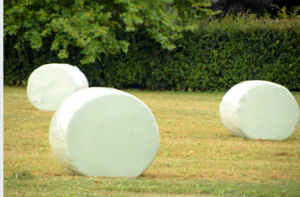When selecting the best baling twine, deciding which one to purchase can be difficult. We’ve covered several brands, including Unipak, Lincoln Sisal, Tytan, and Farmer’s Wire, and will discuss each in turn. But which one is best? Read on to find out! You’ll be glad you did. After all, we’ve already used them and know their strengths and weaknesses.
 Unipak baling twine
Unipak baling twine
If you’re looking for a reliable way to package crops, you should consider the benefits of Unipak baling twine. Not only can it be used to pack crops, but it can also replace metal wire fences. As a bonus, it is eco-friendly. In addition to being durable and long-lasting, Unipak baler twine can also be stored easily and is an excellent choice for large farms. For more information, visit Unipak.com. Find out the best baling twine.
Made in Europe, Unipak baling twine features excellent knot strength and UV stability and is colour-coded to ensure easy identification. Available in a variety of strengths, colours, and sizes, Unipak twine has a solution for any application. So whether you’re weighing wheat, corn, or hay, Unipak has the twine you need. In addition to baling twines, Unipak offers high-density baling twines that offer a high-density option.
Lincoln Sisal baling twine
Lincoln Sisal baling twine has numerous benefits. It is biodegradable and has been treated to resist insect infestation. It is highly uniform and offers 290 pounds of tensile strength, and it is biodegradable and will not harm the crops and environment. It is an excellent choice for round and square baling. To get the most out of Lincoln Sisal baling twine, you must know more about its benefits.
Lincoln’s Sisal baling twine is made from natural plant fibres and is entirely biodegradable. It is also highly durable and comes on a spool of 20,000 feet. It has many benefits and is perfect for farmers who need to keep their baling twine in top shape for as long as possible. Sisal baler twine is also known for its strength, consistency, and dependability.
Tytan baling twine
If you’re looking for a quality poly baler twine, look no further than Tytan. Built to last, this twine has been UV-stabilized for years outdoors. And its uniform, thick-round design makes for trouble-free baling. First, determine what makes Tytan baling twine the best choice for your baling needs. Then, read on to learn more about these twines and how they can help you save time and money on your baling project.
Find out the best baling twine. Baling twine is available in many colours and materials, and Tytan’s sisal twine is an excellent choice for packaging. It’s available in two-roll packages, each with 9,000 feet of twine. It works best for square balers but may not be the best choice for mini-round balers. However, consumers highly rate this brand, so do your research before purchasing.
Farmer’s Wire baling twine
Traditionally, the baling wire originated in the 1800s, when farmers manually tied up bales of hay or produce. Initially used only for this purpose, the wire was eventually introduced to other industries, including construction and recycling. Since then, baling twine has been used extensively across multiple industries, including construction and recycling. To learn more about its history and benefits, read on! Here are some of the most common uses of baling wire.
The first baling wire was used in agriculture as a convenient, robust tool. However, it has various applications and has become a staple in DIY and agricultural industries. For example, it is often used to repair broken fences and to make simple repairs around the house. It is so versatile that it has become a commodity in many industries. So, how can you use Farmer’s Wire in everyday life?
There are several factors to consider when selecting the best baling twine for your needs. First, the twine must fit the tools and baling machine. Its weight, diameter, and meter weight ratio should all be appropriate. The weight per foot of baling twine should be balanced for maximum efficiency. Baling twine with a low weight can be loaded into baling machines more quickly, and elongation is a crucial consideration for baling pressed fodder.